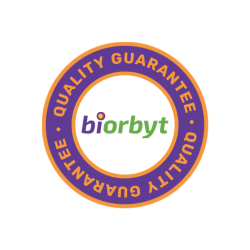You have no items in your shopping cart.
Cart summary

MOB4A/MOB1B Protein, Human, Recombinant (GST)
Catalog Number: orb1956265
| Catalog Number | orb1956265 |
|---|---|
| Category | Proteins |
| Description | MST1 and MST2 are the mammalian Ste2-related protein kinases most closely related to Drosophila Hippo, a major regulator of cell proliferation and survival during development. Overexpression of MST1 or MST2 in mammalian cells is proapoptotic. MST1 and MST2 activity increase during mitosis, especially in nocodazole-arrested mitotic cells, where these kinases exhibit an increase in both abundance and activation. MST1 and MST2 also can be activated nonphysiologically by okadaic acid or H2O2. The MOB1B and MOBKL1B polypeptides, homologs of the Drosophila MATS polypeptide, are identified as preferred MST1/MST2 substrates in vitro and are phosphorylated in cells in an MST1/MST2-dependent manner in mitosis and response to okadaic acid or H2O2. MST1/MST2-catalyzed MOB1B/MOBKL1B phosphorylation alters the ability of MOB1B/MOBKL1B to bind and regulate downstream targets such as the NDR-family protein kinases. Thus, MOB1B/MOBKL1B phosphorylation in cells promotes MOB1B/MOBKL1B binding to the LATS1 kinase and enables H2O2-stimulated LATS1 activation loop phosphorylation. Most importantly, the replacement of endogenous MOB1B/MOBKL1B by a non-phosphorylatable mutant is sufficient to accelerate cell proliferation substantially by speeding progression through G1/S as well as mitotic exit. |
| Tag | N-GST |
| Purity | 98.00% |
| MW | 52.3 kDa (predicted); 43-48 kDa (reducing conditions) |
| UniProt ID | Q7L9L4 |
| Expression System | E. coli |
| Biological Origin | Human |
| Biological Activity | MST1 and MST2 are the mammalian Ste2-related protein kinases most closely related to Drosophila Hippo, a major regulator of cell proliferation and survival during development. Overexpression of MST1 or MST2 in mammalian cells is proapoptotic. MST1 and MST2 activity increase during mitosis, especially in nocodazole-arrested mitotic cells, where these kinases exhibit an increase in both abundance and activation. MST1 and MST2 also can be activated nonphysiologically by okadaic acid or H2O2. The MOB1B and MOBKL1B polypeptides, homologs of the Drosophila MATS polypeptide, are identified as preferred MST1/MST2 substrates in vitro and are phosphorylated in cells in an MST1/MST2-dependent manner in mitosis and response to okadaic acid or H2O2. MST1/MST2-catalyzed MOB1B/MOBKL1B phosphorylation alters the ability of MOB1B/MOBKL1B to bind and regulate downstream targets such as the NDR-family protein kinases. Thus, MOB1B/MOBKL1B phosphorylation in cells promotes MOB1B/MOBKL1B binding to the LATS1 kinase and enables H2O2-stimulated LATS1 activation loop phosphorylation. Most importantly, the replacement of endogenous MOB1B/MOBKL1B by a non-phosphorylatable mutant is sufficient to accelerate cell proliferation substantially by speeding progression through G1/S as well as mitotic exit. |
| Expression Region | A DNA sequence encoding the human MOBKL1A (Q7L9L4) (Met1-Arg216) was fused with the GST tag at the N-terminus. Predicted N terminal: Met |
| Storage | -20°C |
| Note | For research use only |
| Application notes | A Certificate of Analysis (CoA) containing reconstitution instructions is included with the products. Please refer to the CoA for detailed information. |
| Expiration Date | 6 months from date of receipt. |


